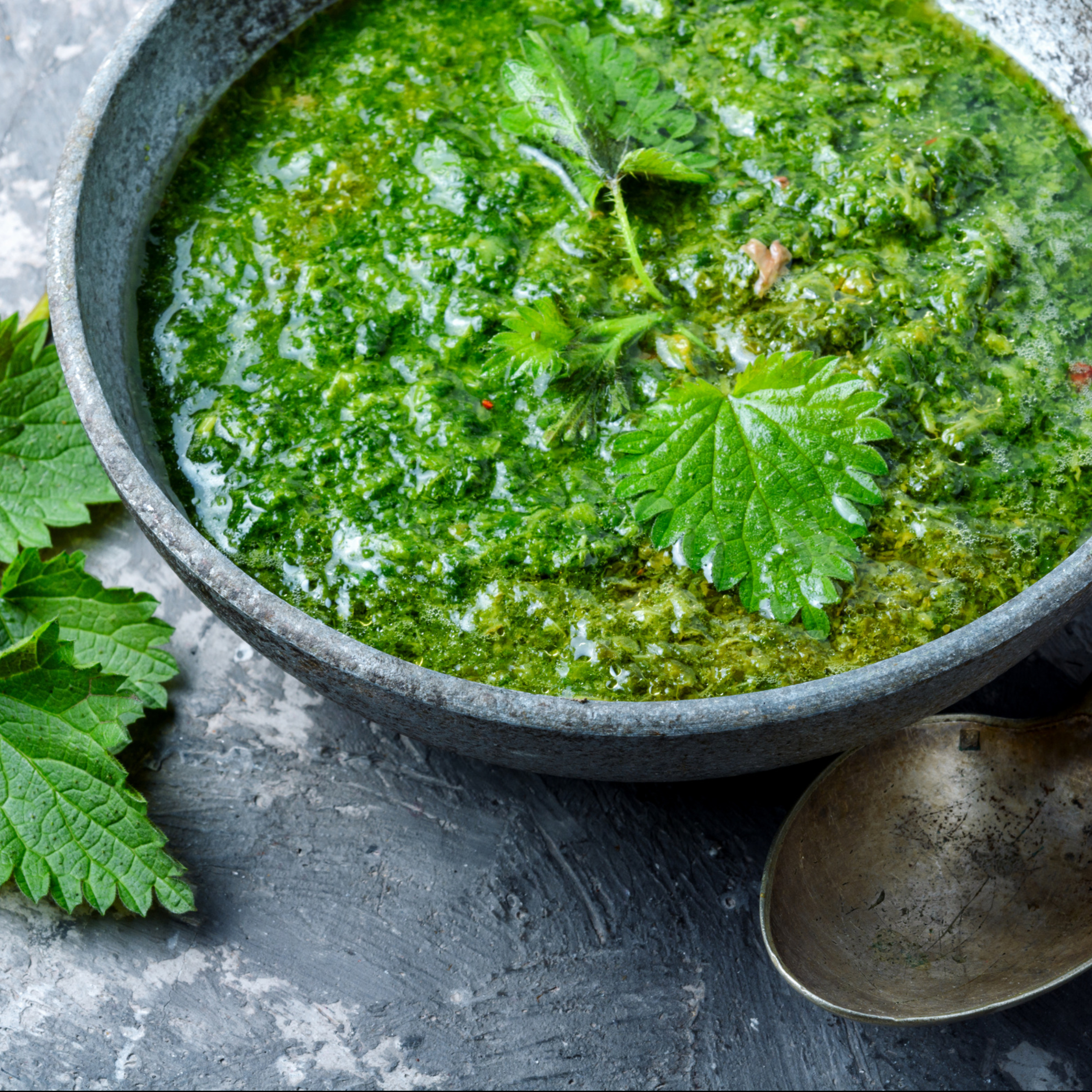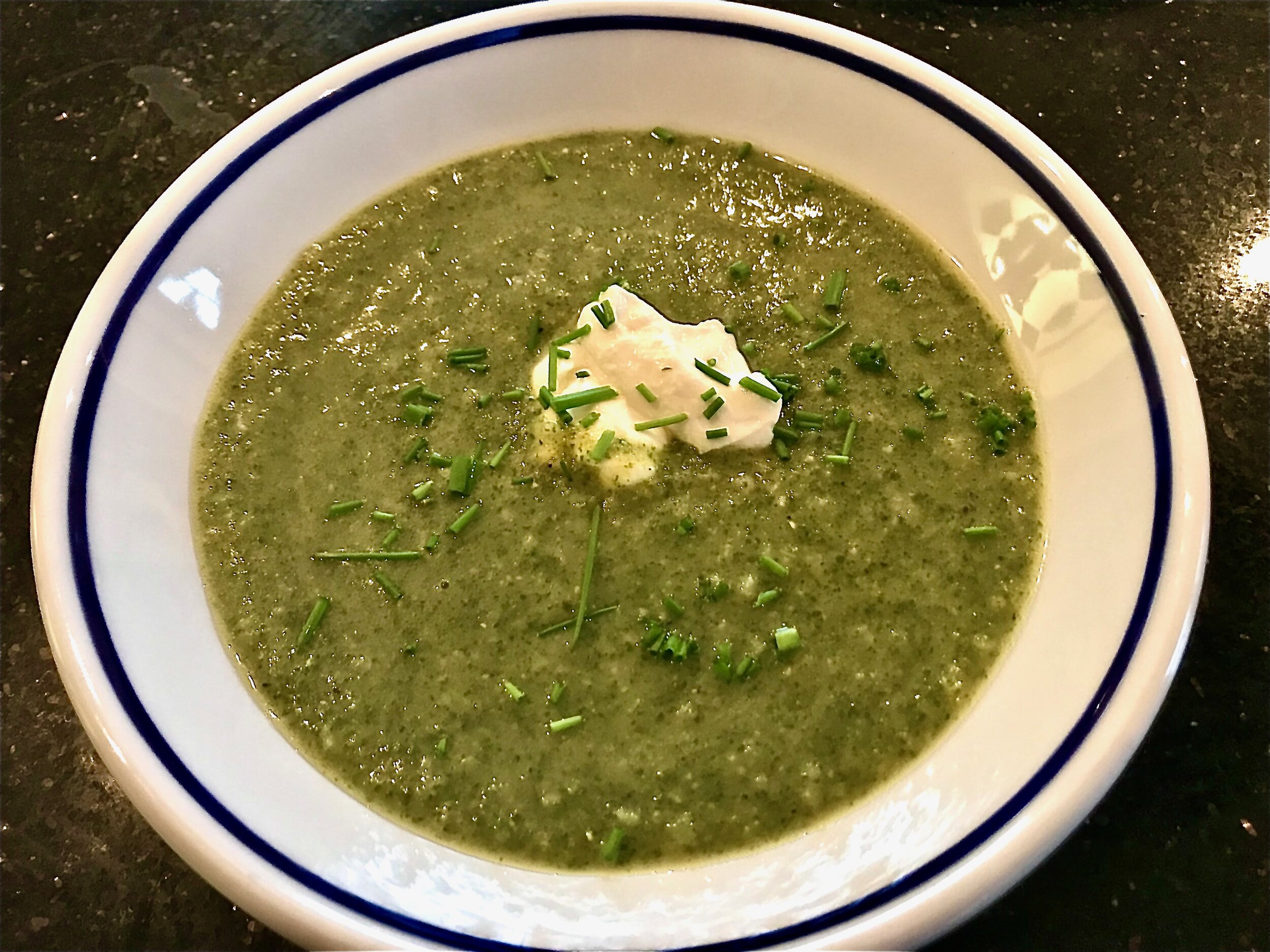Exploring the Multifaceted Health Benefits of Stinging Nettle: From Neurological Support to Cancer Prevention
Posted on January 28, 2024 • 9 minutes • 1794 words
Table of contents
- Central Nervous System Effects
- Cardiovascular System Actions
- Anti-Inflammatory Properties
- Antidiabetic Potential
- Anticancer Activities
- The benefits of stinging nettle soup
-
Frequently Asked Questions
- What is Stinging Nettle?
- How Does Stinging Nettle Benefit the Nervous System?
- Can Stinging Nettle Improve Cardiovascular Health?
- Does Stinging Nettle Have Anti-Inflammatory Properties?
- Is Stinging Nettle Beneficial for Diabetics?
- Can Stinging Nettle Prevent Cancer?
- What Nutrients Are Found in Stinging Nettle?
- Is Stinging Nettle Effective Against Allergies?
- Does Stinging Nettle Have Diuretic Effects?
- How is Stinging Nettle Prepared for Consumption?
- References
Stinging nettle, or Urtica dioica, stands out as a diverse and historically rich plant, notable for its therapeutic applications and use in various forms like soups and medicinal remedies. Its leaf extracts are recognized for their beneficial impact on cardiovascular health, particularly in managing hypertension. Additionally, Urtica dioica has shown promise in enhancing glucose regulation, offering potential in diabetes management. The root extracts are known for their role in mitigating prostatic hyperplasia symptoms. As an anti-inflammatory agent, it is used in treating rheumatoid arthritis. Moreover, its extract has shown efficacy in increasing the sensitivity of certain cancer cells to treatment.
Central Nervous System Effects
The impact of Urtica dioica, commonly known as stinging nettle, on the central nervous system is a subject of increasing interest in the field of herbal medicine and neuropharmacology. This plant, with its rich history in traditional medicine, is being explored for its potential neurological benefits, particularly in its adaptogenic properties.
| Nettles soup |
|---|
 |
Adaptogens are natural substances believed to help the body adapt to stress and exert a normalizing effect upon bodily processes. Stinging nettle, in this context, is thought to influence the central nervous system in a way that could potentially be beneficial for managing stress and enhancing overall mental well-being.
One of the most intriguing aspects of Urtica dioica in relation to the central nervous system is its potential effect on neurological disorders. Preliminary studies, mainly in animal models, have hinted at the possibility of this plant reducing spontaneous activity and seizures. This suggests a potential use in the treatment or management of conditions like epilepsy or other seizure-related disorders.
| Raw nettles |
|---|
 |
Furthermore, the neuroprotective properties of Urtica dioica are also under investigation. The presence of various bioactive compounds in the plant, such as flavonoids and phenolic compounds, may contribute to protecting nerve cells from damage or degeneration. This could be significant in the context of neurodegenerative diseases like Alzheimer’s or Parkinson’s disease.
Moreover, the potential anxiolytic and antidepressant effects of stinging nettle are also being explored. Its use in traditional medicine for mood enhancement and stress relief provides a basis for these investigations. The exact mechanisms by which Urtica dioica impacts the central nervous system are not entirely clear and are the subject of ongoing research. Understanding these mechanisms could open new avenues for the development of natural therapeutics for a range of neurological conditions.
In conclusion, Urtica dioica’s impact on the central nervous system is a promising area of research. Its adaptogenic properties, potential in reducing seizures, neuroprotective effects, and possible benefits in mood disorders highlight its potential as a valuable natural remedy in neuropharmacology.
Cardiovascular System Actions
Urtica dioica has been traditionally used for its beneficial effects on cardiovascular health. The plant contains a variety of compounds that can positively influence the cardiovascular system. One notable action is its vasodilatory effect, which refers to the widening of blood vessels. This can lead to a decrease in blood pressure, making stinging nettle a potential natural remedy for hypertension.
| Nettles soup |
|---|
 |
The hypotensive effects of Urtica dioica are particularly significant. Hypertension, or high blood pressure, is a major risk factor for cardiovascular diseases such as heart attacks and strokes. By naturally lowering blood pressure, stinging nettle could be a valuable tool in the management and prevention of these conditions.
Moreover, the cardiovascular benefits of Urtica dioica extend beyond blood pressure regulation. The plant is rich in nutrients and antioxidants, which can contribute to overall heart health. These substances might help in reducing inflammation and oxidative stress, both of which are factors in heart disease.
Research into the exact mechanisms by which Urtica dioica influences the cardiovascular system is ongoing. The identification of specific bioactive compounds and understanding their interaction with the human body could lead to more effective use of stinging nettle in cardiovascular therapy.
In summary, Urtica dioica’s role in cardiovascular health, primarily through its vasodilatory and hypotensive effects, highlights its potential as a natural remedy in managing and preventing heart-related conditions. Its nutrient-rich composition further supports its use in maintaining overall cardiovascular health.
Anti-Inflammatory Properties
Urtica dioica has garnered attention for its significant anti-inflammatory properties. This natural herb has been used historically in various cultures for its medicinal qualities, particularly in treating inflammatory conditions.
The anti-inflammatory effects of Urtica dioica are attributed to its unique composition of bioactive compounds. These compounds include flavonoids, phenolic acids, and lignans, which are known to exhibit anti-inflammatory actions. They work by inhibiting various enzymes and signaling molecules that play a crucial role in the inflammatory process. This inhibition can help reduce the overall inflammatory response in the body.
| Nettles soup |
|---|
 |
Stinging nettle’s efficacy in treating arthritis, a common inflammatory condition, is of particular interest. Arthritis sufferers often experience joint pain and swelling due to inflammation. The anti-inflammatory properties of Urtica dioica may help alleviate these symptoms, offering a natural alternative or complement to traditional pharmaceutical treatments.
Furthermore, Urtica dioica’s anti-inflammatory benefits extend to other conditions characterized by inflammation. This includes ailments like allergies, where the anti-inflammatory action can help mitigate allergic reactions and associated symptoms.
Research into the full extent of Urtica dioica’s anti-inflammatory potential is ongoing, with scientists exploring its mechanisms of action and the optimal ways to harness its benefits. This research is crucial in understanding how best to utilize this natural resource in modern medical practices.
In summary, the anti-inflammatory properties of Urtica dioica make it a plant of considerable interest in the field of natural medicine. Its ability to inhibit key components of the inflammatory process positions it as a potentially effective treatment for various inflammatory conditions, including arthritis and allergies.
Antidiabetic Potential
Stinging nettle has been investigated for its potential in managing diabetes, a global health concern. Its role in blood glucose regulation is particularly noteworthy. Stinging nettle is believed to enhance insulin secretion, which is crucial for controlling blood sugar levels. This effect can be particularly beneficial for individuals with type 2 diabetes, where insulin resistance is a key issue.
The hypoglycemic effects of Urtica dioica are another area of interest. By potentially lowering blood sugar levels, it offers a natural approach to diabetes management. This aligns with the growing interest in herbal and natural remedies for chronic conditions like diabetes, where long-term medication use can have side effects.
| Nettles soup |
|---|
 |
Moreover, the plant’s rich nutritional profile, including vitamins, minerals, and phytochemicals, contributes to its potential health benefits for diabetic patients. These nutrients can support overall health, which is especially important for individuals managing chronic conditions.
Ongoing research is focusing on understanding the exact mechanisms behind Urtica dioica’s antidiabetic effects and determining the most effective ways to use it as a therapeutic agent. This includes exploring the optimal dosages and forms of the plant for maximum benefit.
In summary, the antidiabetic potential of Urtica dioica, particularly in enhancing insulin secretion and exhibiting hypoglycemic effects, makes it a subject of interest in natural approaches to diabetes management. Its nutritional value further supports its role in promoting overall health in individuals with diabetes.
Anticancer Activities
Stinging nettle has been explored for its potential anticancer properties. This interest is particularly focused on its effects in prostate and breast cancer. The plant contains a variety of bioactive compounds, which are believed to influence cellular processes and gene expressions related to cancer growth.
| Nettles salad |
|---|
 |
The mechanisms through which Urtica dioica exerts its anticancer effects are complex and involve multiple pathways. These include the modulation of hormonal levels, inhibition of cell proliferation, and induction of apoptosis (programmed cell death) in cancer cells. These actions could potentially slow down or prevent the progression of certain types of cancer.
Furthermore, the antioxidant properties of stinging nettle may also contribute to its anticancer potential. By reducing oxidative stress, which is a known factor in the development of cancer, Urtica dioica could play a role in cancer prevention.
Research into Urtica dioica’s anticancer effects is still in the early stages, and more studies are needed to fully understand its efficacy and mechanisms. This includes clinical trials to evaluate its safety and effectiveness in humans.
In summary, the potential anticancer properties of Urtica dioica, especially in relation to prostate and breast cancer, make it a subject of interest in the field of natural medicine and cancer research. Its ability to affect cancer cells and potentially contribute to cancer prevention positions it as a promising natural agent in the fight against cancer.
The benefits of stinging nettle soup
The benefits of stinging nettle soup, as gleaned from the article on Urtica dioica, are multifaceted and span various health aspects. Stinging nettle, the primary ingredient, is known for its rich nutrient profile, which includes vitamins A, C, and K, as well as minerals like calcium, iron, and magnesium. These nutrients contribute to overall health and wellness, supporting functions like bone health, immune response, and blood circulation.
| Nettles soup |
|---|
 |
Moreover, the soup’s base ingredient, stinging nettle, has anti-inflammatory properties, making it potentially beneficial for those with inflammatory conditions such as arthritis. Its diuretic properties can aid in detoxification and urinary health. Additionally, the antioxidant components in stinging nettle help combat oxidative stress, which is linked to chronic diseases.
Stinging nettle soup might also offer benefits for those with allergies, as the plant has been used traditionally to alleviate allergic symptoms. For those managing blood sugar levels, the hypoglycemic effects of stinging nettle could be advantageous.
In terms of preparation, the cooking process can help neutralize the stinging hairs of the plant, making it safe and pleasant to consume. This traditional dish can be a nutritious addition to a balanced diet, offering a unique blend of flavors and health benefits.
Frequently Asked Questions
What is Stinging Nettle?
Stinging nettle is a plant known for its therapeutic properties, including effects on the nervous system, cardiovascular health, and potential in diabetes and cancer treatment.
How Does Stinging Nettle Benefit the Nervous System?
It has adaptogenic properties that may positively impact neurological disorders.
Can Stinging Nettle Improve Cardiovascular Health?
Yes, it has vasodilatory effects and may help lower blood pressure.
Does Stinging Nettle Have Anti-Inflammatory Properties?
Yes, it’s known to reduce inflammation, beneficial for conditions like arthritis.
Is Stinging Nettle Beneficial for Diabetics?
It shows potential in managing blood glucose levels and enhancing insulin secretion.
Can Stinging Nettle Prevent Cancer?
Initial research suggests it might have anticancer properties, especially against prostate and breast cancer.
What Nutrients Are Found in Stinging Nettle?
It contains vitamins A, C, K, calcium, iron, and magnesium.
Is Stinging Nettle Effective Against Allergies?
Traditionally, it’s been used to alleviate allergic symptoms.
Does Stinging Nettle Have Diuretic Effects?
Yes, it can aid in detoxification and urinary health.
How is Stinging Nettle Prepared for Consumption?
Cooking stinging nettle neutralizes its stinging hairs, making it safe to eat.
References
Share
Tags
Counters

